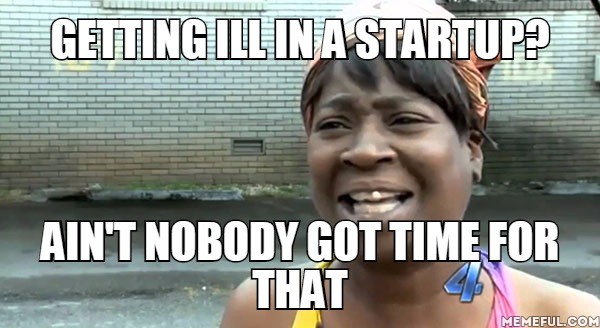Smart city app - Story thus far...

All my spare time has been devoted into our smart city project for the Hong Kong City Challenge for the past two months. This is hosted by the Hong Kong Science and Technology Park with this competition focused on smart city applications. Second round pitch was last Sunday, and even though we didn't progress to the final round, it's been a great experience.
We were in the top 40 out of 250+ teams - looking back, I'm surprised we got this far.
In these two short months, I've learnt a lot - and not just about coding. Turning out a product is not enough - everyone's got a product - that's just the ticket to get in. The important elements like leadership, management, teamwork and resourcing are there.
The main things I learnt were a little different - keeping your eyes on the horizon, the importance of mentors, and having a continuous feedback cycle.
Keeping your eyes on the horizon.
As engineers, we thrive on technical work and can easily spend hours building the product - but when leading a start up project, this is only one of many roles - more important is the leading part.
Firstly, focussing only on the problem at hand is like driving without glasses - all you can see is the pothole in the road, and in avoiding it, you end up on the wrong side with oncoming traffic.
Secondly, the team is looking to you for guidance - if you only give them shortsighted directions, they can only give your shortsighted solutions.
In both cases, I learnt quickly that you need you need to look up and anticipate issues. Your team members have been delegated smaller tasks and won't have the scope to see as far.
I found putting problems in the context of the bigger picture gave me three immediate benefits:
- No matter how big the problem may seem, it becomes a tiny bump on the road
- You won't lose control and stress out the team
- You end up with a solution that steers the project in the right direction
The importance of mentors
I have to admit I underestimated how important it is to find a good mentor, and while I had mentors before, I never understood why.
Several weeks into the project, when it was sucking up all my spare time, I found that friends and family didn't understand the journey/stress/problems in quite the same way. They were happy to listen, but an energetic discussion it was not (obviously this will depend on your social circle).
This can be a little isolating and definitely not a good source of motivation.
Meanwhile, my mentor Andy, who had run a tech startup for years now, was very happy to listen and share his experience. The face to face discussion with somebody who had gone through it is very different to just reading about some internet entrepreneur half way across the globe. There is a sense that whatever you are doing is much more feasible.
I'd say a good mentor would need to have
- experience in your field to provide guidance
- will critically assess your idea/plan/progress, and
- (this ones a hard one) actually want you to succeed
So a big thank you to Andy, who manages to tick one of three boxes (joking!)
Having a continuous feedback cycle
The most scarce thing a start up has is time. Whether it's to build the prototype, to do a pitch or to get market feedback, I always felt it was a sprint - there's always something to do after this step is done. So having a culture of continuous feedback is crucial.
If we view time as a resource, continuous feedback gave us two main benefits:
- Fix problems early, so it doesn't mushroom into an "expensive" problem
- Fix processes early so ineffiencies are eliminated early
Of course this is not criticizing somebody's work continuously - continuous feedback works by providing specific examples which are actionable.
Where to get this feedback? Get it from your team, and provide it to your team.
There was a little culture shock at first as perhaps people are not used to being asked for feedback, nor are they accustomed to receiving feedback directly.
For example, our designer initally produced a logo that did not reflect the nature of the product. Since we had continous feedback, we could refocus the design to our vision early on. Had we seen the design only after all the mockups been produced, we would have had an upset designer and at least a two week delay - a delay we may not have recovered from.
And if you read this far and wondering why I haven't mentioned what the project is about - it's still in the works.
Stay tuned for an update!
Last modified May 17, 2016, 10:16 p.m.
Published May 17, 2016, 12:46 a.m.
blog comments powered by Disqus
